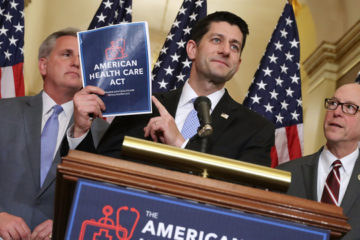Matt Levine’s Money Stuff: Drug Pricing and Un-American Trading

05 Feb 2016 07:53
(Bloomberg View) —
Shkreli, etc.
The system for pricing prescription drugs in the U.S. is a bit of a disaster. Our reliance on medical insurance means that pricing is not based on consumer demand or ability to pay. Nor is it exactly based on negotiations with insurers: “Medicare, one of the biggest buyers of prescription drugs, is prohibited from negotiating drug prices with pharmaceutical companies.” The “expensive and time-consuming process of getting F.D.A. approval” to sell generic drugs deters competition and allows approved manufacturers to charge whatever prices they want. These are systemic problems, which were created by legislation and regulation, and which demand legislative solutions. So yesterday a House committee convened a hearing to consider these problems and try to come up with a comprehensive solution.
Of course I am kidding; they convened a hearing so they could ask Martin Shkreli about his Wu-Tang album and watch him smirk. He gave good smirk! Everything is fixed now. It turns out that those big drug-pricing problems weren’t systemic problems after all: The real problem was a smirky 32-year-old, and we solved it by yelling at him. Good work everyone.
To be fair, it’s not jus tShkreli. Howard Schiller of Valeant Pharmaceuticals was at the hearing too (here’s his statement), as was a beleaguered Food and Drug Administration official. At one point this happened: Howard Schiller gives names of individuals who made the decision to raise the price of Isuprel. He says he and CEO Michael Pearson were among the individuals who made the decision. Mr. Schiller says he can’t recall how the final decision to raise the prices were made. He says he’ll try to send along a list of individuals who made the decision to increase prices.
Can you imagine? Here is a problem that can actually be dealt with through government action, a problem of systems and rules that were set by Congress and that can be changed by Congress. And here Congresspeople were, talking about the problem. Except that they weren’t. They were yelling at a drug- company executive to give them the names of his employees so they can yell at them too. It’s pure theatrics, but it’s a theater of demonstrating that Congress doesn’t care about fixing the problem. There’s not even a pretense of wanting to help people; it’s just finding someone to yell at, and then yelling at them. At a hearing in a legislature! You’re legislators! Do your jobs! Come on.
There is a more general lesson here. Many bad things are caused by bad systems, not identifiably evil individuals. If you are in charge of the system, you should make it better. But finding an identifiably evil individual — you can identify him by his smirk! — and blaming him for everything is much more emotionally satisfying, and probably a better electoral strategy.
Afterwards Martin Shkreli rather adorably ran to the wrong car, then did a video chat with his fans. Imagine being hislawyer. And then there is the awkward fact that Valeant gets most of its revenue growth from price increases, but its chief executive officer said on a conference call last April that most of that growth came from volume. John Hempton pointed out the discrepancy the other day, and the company has responded: The characterization “would not have been accurate” if Mr. Pearson were referring to total revenue growth, the company said in its statement. The company said Mr. Pearson was accurate, however, if describing revenue growth for the top 20 selling products.
I feel like people were paying a bit of attention to Valeant’s pricing? That seems like the sort of thing you’d want to nail down before saying it.
Market structure
I don’t understand market structure and high-frequency trading at all. I mean, I have a general understanding of how it works and all that. But I don’t understand the level of emotion that it stirs up. There are a lot of technical and structural issues; many of them have not-inconsiderable intellectual interest, but none of it is, like, life and death. High- frequency trading isn’t curing cancer, nor is it leaving widows and orphans destitute. It’s an incremental efficiency improvement, with some opportunity for gamesmanship, that overall allocates some money out of the pockets of banks and hedge-fund managers and into the pockets of exchanges and HFT technologists.
But IEX’s application to become a public stock exchange has really gotten America in touch with its feelings about HFT, and has elicited 349 comment letters to the Securities and Exchange Commission, at least two of them by fake eighth-graders. And here’s Jeffrey Sprecher, chief executive officer of Intercontinental Exchange Inc., which runs the New York Stock Exchange, on IEX’s exchange application: “What IEX is asking is for an exemption that would solely be for IEX, not for the industry,” Sprecher said. “It is looking for the ability to have a regulated monopoly status that the other exchanges do not have.”
“I don’t think it’s fair,” he added. “It is un-American and it’s not fair and it’s not the way that our system should work.”
Look, I think there is a real interesting debate over whether IEX’s 350-microsecond delay is appropriate for a public exchange, but I am skeptical that anything particularly “un- American” can happen in those 350 microseconds.
Speaking of un-American, accused flash-crash spoofer “Navinder Singh Sarao, 37, on Thursday began fighting extradition to the US where he faces 22 charges ranging from wire fraud to commodities manipulation over a four-year period, which carry sentences totalling a maximum of 380 years.” Again, the emotional fury is just beyond me. I know the 380 years is an exaggeration, but still: If I were a U.K. judge, and the U.S. was trying to put a man in prison for 380 years for programming a computer to pretend to trade stocks, I would declare that an obvious human rights violation and let him go.
Elsewhere, Virtu is doing agency executions. The U.K.’s new certification rules will apply to high-frequency traders. And Commodity Futures Trading Commissioner J. Christopher Giancarlo has a podcast.
Compliance
I feel like people have mostly stopped talking about the “revolving door” as a force for laxity in financial enforcement, which is good, because it clearly works the other way. Here is a story about two federal prosecutors who are setting up their own firm to take advantage of the lucrative market in outside monitoring that they’ve created: As a federal prosecutor, Ms. Jonas most recently led the criminal investigations of General Motors and Toyota, which both resulted in settlements with federal authorities. As part of the agreement, G.M. paid $900 million and Toyota $1.2 billion in penalties. Both companies also agreed to be subjected to independent monitoring of their safety practices, which have fallen under Ms. Jonas’s watch.
Now they will “provide independent monitoring for companies across all industries as well as for government units like police departments.”
On the other hand, it’s a tough time to be a compliance officer: Several recent enforcement actions found compliance officers personally liable for mistakes within their firms. Meanwhile, New York’s principal financial regulator, backed by New York Gov. Andrew Cuomo, wants the power to seek criminal charges against compliance officers in some cases.
Compliance officers are “shaking in their boots,” said Carrie Mandel, a member of recruiter Spencer Stuart’s legal, compliance and regulatory practice.
What is the right model here? Will punishing compliance officers for non-compliance lead to more or less compliance? And: Is the job of a compliance officer to enforce compliance, or to be sacrificed to regulators in the event of non- compliance? “It’s easier for firms to give up their compliance officer, because what are they going to do, give up the CEO?” says a compliance officer.
Elsewhere in non-compliance:Two client advisers at Julius Baer, the Swiss private bank, pleaded guilty in a New York court on Thursday to helping Americans dodge taxes, as their employer paid $547m to end a long-running probe by the US Department of Justice.
And Rajat Gupta will get a reconsideration of his insider- trading appeal. And federal investigators are investigating “young insurance magnate Alexander Chatfield Burns.” And here is the fascinating story of an accused serial impostor and identity thief. And Harry Markopolos thinks he’s found a Ponzi scheme that’s “bigger than Madoff.”
Morgan Stanley sounds fun
Here is a profile of Colm Kelleher, now President of Morgan Stanley, that is a lot of this: When he ran Morgan Stanley’s bond trading division in London, he was known for aggressively tracking down traders who had lost money. Former Morgan Stanley traders recall being summoned to Kelleher’s office with a call and then berated if they didn’t pick up the phone right away. In his office, he would glare at them over the top of his glasses when he didn’t like the answers he got.
But I guess it’s not fun anywhere in banking these days. Here is a post-mortem of Credit Suisse’s 2000 acquisition of Donaldson, Lufkin & Jenrette, which Credit Suisse wrote down yesterday, and which was nice while it lasted: The acquisition brought Credit Suisse well-known bankers like Hamilton James, now president of Blackstone Group, and deal maker Ken Moelis, who now runs his own advisory firm. But it was a messy marriage from the start.
The freewheeling, energetic upstart didn’t mesh well within the more buttoned-up, process-driven Credit Suisse First Boston, the Swiss lender’s investment-banking unit. “It like was a group of people living on a tropical island,” one former executive said of DLJ. “And then the dream ended.”
Meanwhile “BNP ParibasSAM reported sharply lower fourth- quarter net profit on Friday, hit by a hefty write-down on its Italian bank, BNL.” Bloomberg Gadfly’s Duncan Mavin points out that, while the big European investment banks “are finally getting round to a much-needed shake-up,” “the pool of investment banking revenue is already shrinking much faster than anyone expected.” And, in the future of banking, “Lending Club Models Misfire as Loan Write-Offs Exceed Forecasts.”
Super Bowl ads
A good data-journalism project would be to chart the time series of Super Bowl financial-services advertisements and see if they’re a leading indicator: At least six financial brands have purchased air time for the television spectacle that attracts more than 100 million viewers, aiming to establish a place among more mainstream institutions by promising easy and convenient ways to manage your money. The Super Bowl featured just two financial-services ads last year and three in 2014.
One of this year’s ads, for the Quicken Loans Rocket Mortgage product — “you could get a mortgage, on your phone,” etc. — reads like a sequel to “The Big Short.” I will also note that what is widely considered the best-ever Super Bowl financial-services ad, “Money Out the Wazoo,” aired during Super Bowl XXXIV in 2000; the Nasdaq Composite Index peaked about six weeks later.
People are worried about unicorns
Uber, the Ubercorn, is coming under criticism from venture capitalist Fred Wilson for waiting too long to go public: At a certain point, Kalanick needs to return the more than $8 billion that he’s raised back to investors. And the investors want it, according to Wilson.
“When you take money from me, am I getting money from you?” Wilson said. “You have a responsibility to give me my money back sometime.”
It then descends into words I can’t repeat here, but you get the idea. Uber can raise as much money as it wants — here is a New York Times article about the high-net-worth retail deal, raising about $500 million at a $62.5 billion valuation without financial disclosure, that we talked about a few weeks ago — but the early investors will want their money back. The real sign that private markets have replaced public markets will be when Uber raises billions of dollars from retail investors at stratospheric valuations and uses the money to cash out earlier investors.
Meanwhile, Theranos, the Blood Unicorn, has had a rough time lately, with “serious deficiencies” at a lab and bad news about its Cleveland Clinic and Walgreens relationships. How is it coping? Well, here is a Theranos job advertisement for a writer who can “Innovate and conceptually solve problems through the power of excellent storytelling.” The writer must “handle stressful situations and deadline pressures well,” and “bold experimentation in different styles of writing and communications are a must.” I feel like excellent storytelling is part of what got Theranos into this situation, but good luck!
Elsewhere in unicorn worries: “The ‘Tourist’ Investors Flooding Silicon Valley With Money Will Go Home One Day.”
People are worried about bond market liquidity
One classic form of bond market liquidity worrying is worrying about the market for single-name credit-default swaps. The idea is that the decline in CDS liquidity makes it harder for dealers to hedge bond inventories, which makes it harder for them to make markets in bonds, which leads inevitably to a decline in bond market liquidity. So here is a story about how “Ken Griffin’s Citadel is urging the U.S. Securities and Exchange Commission to finish writing rules that mandate central clearing of credit-default swaps,” a pretty standard piece of CDS-liquidity worrying. But then there is this: Asset managers and hedge funds are reviving a corner of the credit derivatives market, with a record number of cleared trades reflecting higher transactional volume so far this year.
Credit derivatives — tarnished by the financial crisis and a subsequent tougher regulatory regime for banks — are experiencing renewed growth after a long period of decline. Recent market volatility has bolstered their appeal as investors use credit default swaps, which track the likelihood of default of a company, to insure their bond portfolios from specific losses and also implement derivative based trading strategies.
Maybe CDS liquidity is getting better? Maybe bond market liquidity will follow? Maybe some day soon I will be able to stop rolling this particular boulder up this particular hill?
Things happen
The Hottest Idea in Finance: capital controls are good. What’s next for Sweden a year after adopting negative rates? Bill Gross investors aren’t the only ones pulling Pimco money. Mediocre asset management is no longer an actual business. GMO Quarterly Letter. Two tequila billionaires who won’t be intimidated by drug lords. Hasbro, Mattel said to have held talks about possible merger. Deal politik: Yahoo tips hand on Starboard-Defense Strategy. Community bankers sound off on Loan- Losses Accounting Plan. The feel-good female solidarity machine. Bill seeks to limit use of arbitration to avoid courts. Securities enforcement 2015Year-End Review. Progress on addressing “Too Big To Fail.” Banks’ financial reporting and financial system stability. Leon Black is mystery Picasso buyer. You can talk about innovation without resorting to cliches.”Despite banks’ attempts to test and use block chain technology for their own commercial gain, it is outside the realm of possibility for the technology to serve any useful purpose for the intermediaries it was designed to replace.” “People all over the world have spent a collective 55 million years on Facebook since the beginning of 2009.” High Rate of Problem Drinking Reported Among Lawyers. Pandas in New York? Batalipot brownies. “Atlas Shruggedon’roids.” Stock Photo University. Frinkiac.
To contact the author of this story: Matt Levine at mlevine51@bloomberg.net To contact the editor responsible for this story: James Greiff at jgreiff@bloomberg.net
For more columns from Bloomberg View, visit http://www.bloomberg.com/view






No Comment